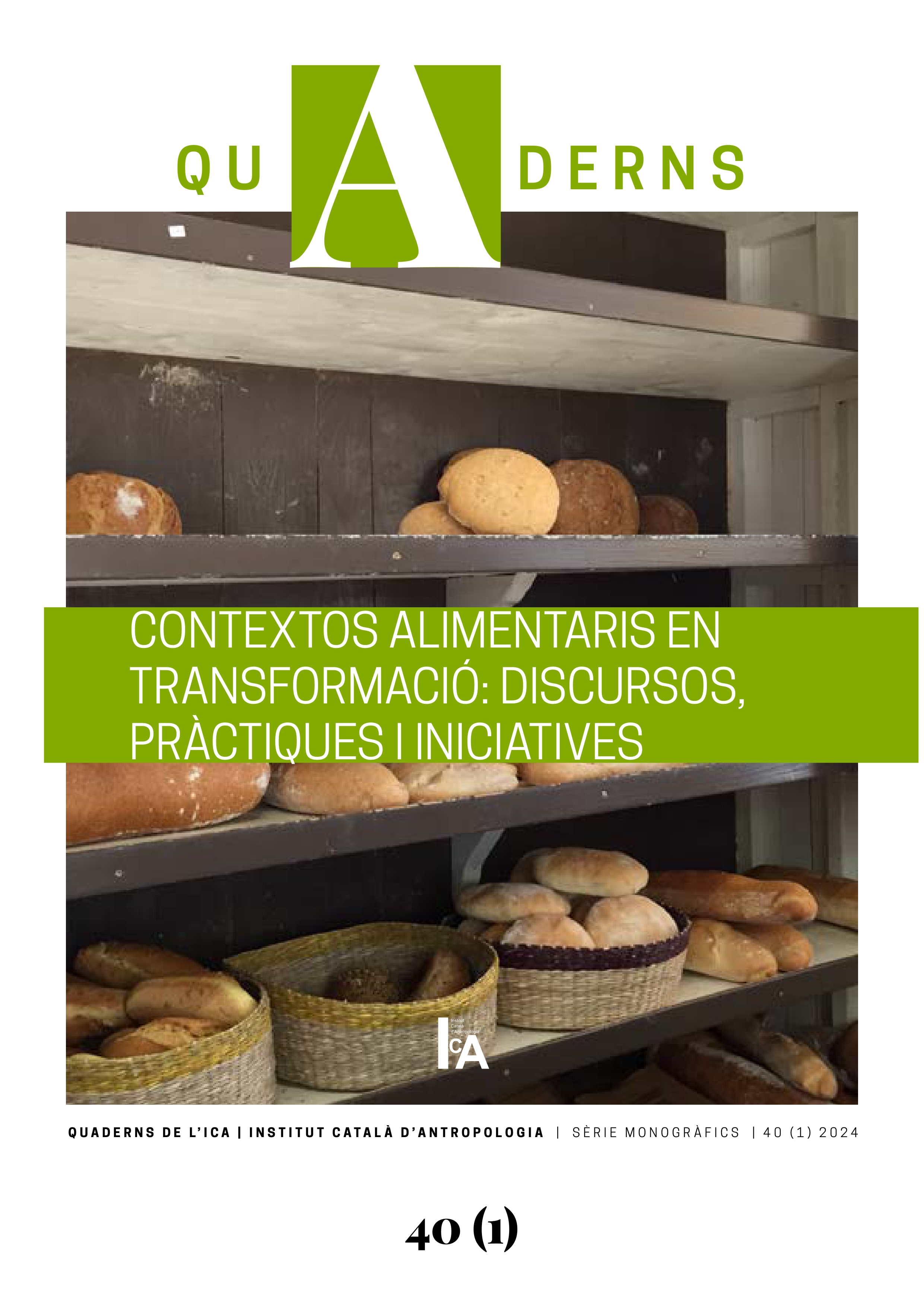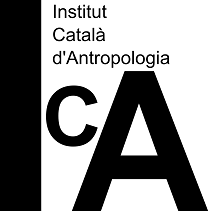Governance of sexuality in the early years foundation stage
DOI:
https://doi.org/10.56247/qua.456Keywords:
Sexuality, childhood, governance, childhood education, communicative vigilanceAbstract
In Catalonia, children’s sexuality is governed in different
ways according to age and gender. From the analysis of the
narratives of children between three and five years old from four Catalan public schools, framed in the SexAfin project, the perceptions of children around sexuality and affectivity have been analysed. Through feminist epistemologies and the understanding of the governance of sexuality, this article depicts the conditioning of communicative surveillance in the meanings of children’s corporeality and gender, as well as adult domination in the access to children’s bodies.
Downloads
Global Statistics ℹ️
|
284
Views
|
225
Downloads
|
|
509
Total
|
|
References
Acedo, N. i Torras, M. (2008). Encarna(c)ciones. Teoría(s) de los cuerpos: 4 (Cuerpos que cuentan). Barcelona: UOC.
Ahmed, S. (2015). La política cultural de las emociones. Universidad Nacional Autónoma de México-Centro de Investigaciones y Estudios de Género. Mèxic.
Álvarez, B., Malgosa, E. i Marre, D. (2022). Strategies for ethnography about sensitive topics: a children’s sexuality education program in Spain. A Pandeli, Gaggiotti & Sutherland (Eds). Organizational Ethnography: An Experiential and Practical Guide (pp. 126-140). London: Routledge. https://doi.org/10.4324/9781003021582 DOI: https://doi.org/10.4324/9781003021582-11
Alvarez, M. i Giamberardino, G. (2021). Ensamblajes de género, sexualidad(es) y educación. Intervenciones críticas entre el activismo y la académia. Buenos Aires: Unicen.
Andújar, A. G. i Gómez, T. G. (2020). Las intersexualidades en la educación afectivo-sexual: análisis sobre su presencia y tratamiento. Educar, 439-456. https://doi.org/10.5565/rev/educar.1092 DOI: https://doi.org/10.5565/rev/educar.1092
Angelides, S. (2004). Feminism, child sexual abuse, and the erasure of child sexuality. GLQ, 10(2), 141–177. https://doi.org/10.1215/10642684-10-2-141 DOI: https://doi.org/10.1215/10642684-10-2-141
Armora, E. (29 de Novembre de 2022). La guía educativa que enseña a masturbarse desde los 3 años llega a los tribunales de Cataluña. ABC Cataluña.
Arruda, Á., Bartra, E., Blazquez, N., Castañeda, M. P., Corres, P., Delgado, G., Maffía, D. (2012). Investigación feminista: Epistemología, metodología y representaciones sociales. Méxic: UNAM: Centro de Investigaciones Interdisciplinarias en Ciencias.
Balasch, Marcel y Montenegro, Marisela. (2003). Una propuesta metodológica desde la epistemología de los conocimientos situados: Las producciones narrativas. Encuentros en Psicología Social, 1(3), 44-48.
Bertran, M. (2015). Factors that influence friendship choices in children under 3 in two schools: An approach towards child culture in formal settings in Barcelona. Childhood, 22(2), 187-200. https://doi.org/10.1177/0907568214528224 DOI: https://doi.org/10.1177/0907568214528224
Bhana, D. (2008). Discourses of Childhood Innocence in Primary School: HIV AIDS Education in South Africa. African Journal of AIDS Research, 7(1), 149-158. https://doi.org/10.2989/AJAR.2008.7.1.15.443 DOI: https://doi.org/10.2989/AJAR.2008.7.1.15.443
Bhana, D. (2013). Kiss and tell: Boys, girls and sexualities in the early years. Agenda 27(3): 57-66. https://doi.org/10.1080/10130950.2013.834677 DOI: https://doi.org/10.1080/10130950.2013.834677
Blaise, M. (2009). "What a girl wants, what a girl needs": Responding to sex, gender, and sexuality in the early childhood classroom. Journal of Research in Childhood Education, 23(4), 450-460. https://doi.org/10.1080/02568540909594673 DOI: https://doi.org/10.1080/02568540909594673
Bucholtz M i Hall K (2004). Theorizing identity in language and sexuality research. Language in Society, 33(4): 469-515. DOI: https://doi.org/10.1017/S0047404504334020
Butler, J. (2016). Los sentidos del sujeto. Herder, Barcelona.
Camargo, A. M. i Ribeiro, C. (2003). La educación sexual en lo cotidiano de la escuela. Educar, 31, 67-85. https://doi.org/10.5565/rev/educar.305 DOI: https://doi.org/10.5565/rev/educar.305
Castro, C. (30 de Novembre de 2022). Escándalo en España por la distribución de cartillas que enseñan a niños de tres años a masturbarse: "Una aberración". Semana. Charles, N. i Manthorpe, J. (2007). Facts or Fiction? The Impact of the Policy Fair Access to Care Services on Social Care Assessment of Older Visually Impaired People. Practice, 19(2), 144-157. https://doi.org/10.1080/09503150701393692 DOI: https://doi.org/10.1080/09503150701393692
Crooks, R., i Baur, K. (2010). Our Sexuality. Belmont: Wadsworth Publishing.
Darbyshire, P., MacDougall, C. i Schiller, W. (2005). Multiple methods in qualitative research with children: more insight or just more? Qualitative Research, 5(4), 417-436. https://doi.org/10.1177/1468794105056921 DOI: https://doi.org/10.1177/1468794105056921
Davies, B., i Harré, R. (1990). Positioning: The discursive productions of selves. Journal for Theory of Social Behavior, 20(1), 43-63. DOI: https://doi.org/10.1111/j.1468-5914.1990.tb00174.x
Davies, C. i Robinson, K. (2010). Hatching babies and stork deliveries: Risk and regulation in the construction of children’s sexual knowledge. Contemporary Issues in Early Childhood, 11(3), 249–262. https://doi.org/10.2304/ciec.2010.11.3.249 DOI: https://doi.org/10.2304/ciec.2010.11.3.249
Davies, C. i Robinson, K. (2018). History of Constructions of Child and Youth Sexualities. A Talburt, S. (Ed.), Youth Sexualities: Public Feelings and Contemporary Cultural Politics (pp. 3-30). Santa Barbara: Praeger.
Duffy, B., Fotinatos, N., Smith, A. i Burke, J. (2012) Puberty, health and sexual education in Australian regional primary schools: Year 5 and 6 teacher perceptions. Sex education, 13(2), 186-203. https://doi.org/10.1080/14681811.2012.678324 DOI: https://doi.org/10.1080/14681811.2012.678324
Duque, E., Salceda, M., Campdepadrós-Cullell, R., Merodio, G., & Puigvert-Mallart, L. (2023). Consent? At the Start, You Do Not Even Think About It. Coercive Discourse in the Awakening of Affective–Sexual Relationships in Young Women. Young, 32(1), 5-21. https://doi. org/10.1177/11033088231198600 DOI: https://doi.org/10.1177/11033088231198600
Egan, D. i Hawkes, G. (2008). Imperiled and perilous: Exploring the history of childhood sexuality. Journal of Historical Sociology, 21(4), 355-367 https://doi.org/10.1111/j.1467-6443.2008.00341.x DOI: https://doi.org/10.1111/j.1467-6443.2008.00341.x
Enguix, B. (2018). Cuerpos desbordados como ensamblaje: habitar lo "masculino" de forma "posthumana". Quaderns, 34, 135-156. https://publicacions.antropologia.cat/quaderns/article/view/113
Epstein, D. (1997). Cultures of schooling/cultures of sexuality. International Journal of Inclusive Education, 1(1), 37-53. https://doi.org/10.1080/1360311970010104 DOI: https://doi.org/10.1080/1360311970010104
Espino, J. M. (2012). El grupo focal y el uso de viñetas en la investigación con niños. Revista de Metodología de Ciencias Sociales, 24, 45-66. https://doi.org/10.5944/empiria.24.2012.842
Fajardo-Mora, J. N. i Díaz-Campoverde, D. C. (2021). Educación sexual en la primera infancia de niños de cuatro años. Maestro y sociedad, 293-303. https://maestroysociedad.uo.edu.cu/index.php/MyS/article/view/5499
Feixa, C. (1996). Antropología de las edades. A J. Prat, J y A. Martínez (Eds.), Ensayos de Antropología Cultural. Barcelona: Ariel.
Ferguson, A. A. (2000). Bad boys: Public schools in the making of black masculinity. Ann Arbor, MI: University of Michigan Press DOI: https://doi.org/10.3998/mpub.16801
Fields, J. (2008). Risky Lessons: Sex Education and Social Inequality. New Brunswick: Rutgers University Press.
Flasher, J. (1978). Adultism. Adolescence, 13(51), 517-523. DOI: https://doi.org/10.1007/BF00744802
Flecha, A. (11 de Febrer de 2018). Consentimiento sexual y actos comunicativos. Diario Feminista.
Flecha R., Tomás G., i Vidu A. (2020). Contributions from psychology to effectively use, and achieving sexual consent. Frontiers in Psychology, 11, 92. https://doi.org/10.3389/fpsyg.2020.00092 DOI: https://doi.org/10.3389/fpsyg.2020.00092
Foucault, M. (1976). Vigilar y Castigar. Nacimiento de la prisión. Mèxic: Siglo XXI Editores.
Foucault, M. (1977). Historia de la sexualidad I. La voluntad de saber. Paris: Gallimard.
Frekko, S. Leinaweaver, J. i Marre, D. (2015) How (not) to talk about adoption: On communicative vigilance in Spain. American Ethnologist, 42(4): 703-719. https://doi.org/10.1111/amet.12165 DOI: https://doi.org/10.1111/amet.12165
Freud, S. (1905). Tres ensayos de teoría sexual. Obras completas. Buenos Aires: Amorrortu.
Gagnon, J. i W. Simon. (1973). Sexual conduct: The social sources of human sexuality. Chicago: Aldine.
Galván, F. H. (2021). Tres axiomas etnográficos sobre la organización afectiva de la vergüenza queer. Desacatos. Revista de Ciencias Sociales, 66, 154-167. https://desacatos.ciesas.edu.mx/index.php/Desacatos/article/view/2108/1586
Gilles Deleuze, F. G. (1988). Mil mesetas: capitalismo y esquizofrenia. Valencia: Pre-textos.
Glaser, B. G. i Strauss, A. L. (1967). The discovery of grounded theory: strategies for qualitative research. Hawthorne, N.Y.: Aldine de Gruyter.
Hall, J. J. i Zebracki, M. (2020). Teaching geographies of sexualities: 20 years on. Journal of Geography in Higher Education, 44(2), 179-187. https://doi.org/10.1080/03098265.2020.1753030 DOI: https://doi.org/10.1080/03098265.2020.1753030
Haraway, D. J. (1995). Ciencia, cyborgs y mujeres. La reinvención de la naturaleza. Madrid: Ediciones cátedra.
Harding, S. (2004). “Rethinking Standpoint Epistemology: What is ‘strong objectivity’?” A: Sandra Harding (ed.). The Feminist Standpoint Theory Reader. Intellectual and Political Controversies (pp. 127-140). Nova York: Routledge.
Hennink, M., Hutter, I., & Bailey, A. (2011). Qualitative Research Methods. Londres: SAGE Publications. Irigaray, L. (1998). Ser dos. Paidós: Buenos Aires.
James, A. (2007). Giving Voice to Children’s Voices: Practices and Problems, Pitfalls and Potentials. American anthropologist, 109(2), 261-272. https://doi.org/10.1525/aa.2007.109.2.261 DOI: https://doi.org/10.1525/aa.2007.109.2.261
Malinowski, B. (1969 [1927]). Sexe i repressió en les societats primitives. Barcelona: Edicions 62.
Martínez, M. (2007). La investigación cualitativa etnográfca en educación. Manual teóricopráctico. México: Editorial Trillas.
Matías Álvarez, G. G. (2021). Ensamblajes de género, sexualidad(es) y educación: intervenciones críticas entre el activismo y la academia. Tandil: Editorial UNICEN.
Mead, M. (1928). Coming of Age in Samoa. A psychological study of primitive youth for western civilisation. Ann Arbor: Morrow.
Montgomery, H. (2009). An introduction to childhood. Anthropological perspectives on children’s lives. Chichester: Wiley-Blackwell.
Morgan, D. L. i Spanish, M. T. (1984). Focus Groups: A New Tool for Qualitative Research. Qualitative Sociology, 7, 253-270. https://doi.org/10.1007/BF00987314 DOI: https://doi.org/10.1007/BF00987314
Moore A. i Reynolds P. (2018). Childhood and Sexuality. Contemporary Issues and Debates. London: Palgrave Macmillan. DOI: https://doi.org/10.1057/978-1-137-52497-3
Ngai, S. (2010). Our aesthetic categories. Publications of the Modern Language Association, 125(4), 948-958. https://doi.org/10.1632/pmla.2010.125.4.948 DOI: https://doi.org/10.1632/pmla.2010.125.4.948
Oliva, A. (2010). Debates sobre el género. Teoría feminista: de la ilustración a la globalización (pp. 13-60). Madrid: Minerva.
ONU. (1989). Asamblea General, Convención sobre los Derechos del Niño, 20 Noviembre, United Nations, Treaty Series, 1577.
ONU per l’Educación, la Ciència i la Cultura - UNESCO (2019). De las ideas a la acción. Abordando barreras para la implementación de educación integral en sexualidad en el aula. Recuperado de: https://unesdoc.unesco.org/ark:/48223/pf0000371091_spa
OMS. (2006). Defining sexual health—Report of a technical consultation on sexual health 28–31 January 2002, Geneva (Sexual health document series). World Health Organization.
OMS. (2019). Recomendaciones de la OMS sobre salud y derechos sexuales y reproductivos de los adolescentes [WHO recommendations on adolescent sexual and reproductive health and rights]. Ginebra, Llicència: CC BY- NC-SA 3.0 IGO.
Piaget, J. (1929). The child’s conception of the world. London: Kegan Paul, Trench & Trubner.
Piaget, J. (1959). The Language and Thought of the Child. London: Routledge & Kegan Paul.
Remorini, C. (2021). La infancia y el tiempo: la obsesión WEIRD por la cronologización del desarrollo infantil. Sociedad e Infancias, 5(1), 57-68. DOI: https://doi.org/10.5209/soci.74459
Rich, A. (1980). Heterosexualidad obligatoria y existencia lesbiana (pp. 631-660). Women: Sex and Sexuality.
Robinson, K. (2013). Innocence, knowledge and the construction of childhood: The contradictory nature of sexuality and censorship in children’s contemporary lives. New York: Routledge.
Rubin, G. (1989). Reflexionando sobre el sexo: notas para una teoria radical de la sexualitat. A: Vance, C. (Ed.), Plaer i perill: explorant la sexualitat femenina. Madrid: Revolución.
Sedgwick, E. (2018). Tocar la fibra: afecto, pedagogía, performatividad. Alpuerto, Madrid: Alpuerto Sa.
Sierra, A. (2016) ¿Qué conoce sobre la sexualidad infantil? El Mundo. Recuperat el 15 de Gener de 2023 de: https://www.elmundo.es/vidasana/sexo/2016/03/17/56e93948ca 4741ca198b4600.html
Soler-Gallart M. (2017). Achieving social impact. Sociology in the public sphere. Springer. DOI: https://doi.org/10.1007/978-3-319-60270-7
Tanius, K. (2005). Una introducción al estudio del discurso y al análisis del discurso. Global Media Journal, 2(3), 0-18.
Thorne, B. i Luria, Z. (1986). Sexuality and gender in children’s daily worlds. Social Problems, 33(3), 176–190. https://doi.org/10.1525/sp.1986.33.3.03a00020 DOI: https://doi.org/10.1525/sp.1986.33.3.03a00020
Torras, M. (2021). ¿Hay un cuerpo en este corpus? Corporalidades sex/textuales en lo fantástico. Journal of literature, critique and thought, 4(2), 45-64. https://doi.org/10.30827/tn.v4i2.21149 DOI: https://doi.org/10.30827/tn.v4i2.21149
UNICEF. (9 de Desembre de 2022). La primera infancia importa. Obtenido de UNICEF: https://www.unicef.org/panama/primero-laprimerainfancia
Vidu A., & Tomás G. (2019). The affirmative “Yes”. Sexual offense based on consent. Masculinities & Social Change, 8(1), 91–112. DOI: https://doi.org/10.17583/mcs.2019.3779
Wang, Y. L. (2020). Young Children's peer relationships and interactions in small group settings. Finlandia: Painosalama. DOI: https://doi.org/10.1016/j.lcsi.2021.100531
Wittig, M. (2006). El pensamiento heterosexual y otros ensayos. A M. Wittig, El pensamiento heterosexual y otros ensayos (p. 45-57). Madrid: Egales.
Downloads
Published
How to Cite
Issue
Section
License
Copyright (c) 2024 © 2024 ICA. © 2024 Ares Cela Tomàs, Estel Malgosa. Aquest és un article d’accés obert distribuït sota els termes de la llicència d’ús i distribució Creative Commons Reconeixement 4.0 Internacional (CC BY-NC-SA 4.0)

This work is licensed under a Creative Commons Attribution-NonCommercial-ShareAlike 4.0 International License.
Distributed under the terms of the Creative Commons Attribution 4.0 International Use and Distribution License (CC BY-NC-SA 4.0)




